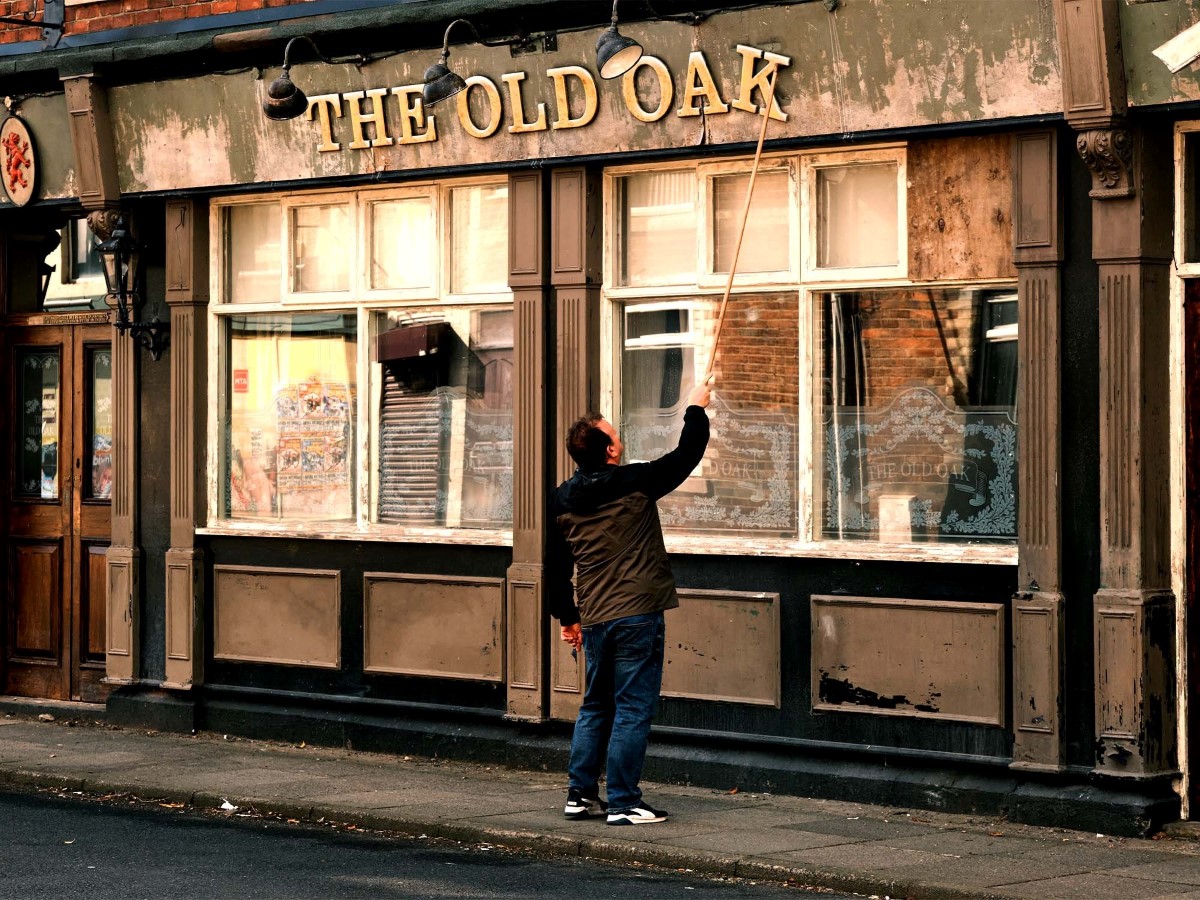In the North of England, circa 2016, there lies “The Old Oak,” a pub nestled in a former mining village near Durham. This place, the last refuge for locals after everything else has shut down, is a poignant symbol of a community left behind. The mine has long been dismantled, plunging the town into poverty. Homes are auctioned for a pittance, only to become temporary shelters for refugees in one of the world’s wealthiest nations. The pub, owned by J.T. Ballantyne, mirrors this decline—dilapidated, frequented by a stubborn, albeit not openly racist, regular clientele, its once lively back room for private parties and gatherings now closed, dusty, with neglected electrical and plumbing issues. T.J.’s personal life mirrors this decay: abandoned by his wife, who later died, and estranged from his son, he finds solace in Marra, a black dog he stumbled upon—or perhaps fatefully met—on an April 9th years ago. The story unfolds with black-and-white photographs of hostile locals witnessing the arrival of a busload of Syrian refugees, leaving behind their homes, possessions, and loved ones. The camera clicks, capturing both the images and the contemptuous, vulgar jeers of the agitated villagers. Yara, an educated young Syrian woman who speaks English and finds a lifeline in photography, is behind the lens, using her art to confront the pain of reality.
T.J. keeps to himself but helps a social worker deliver essentials to the refugees with his truck—a mattress, baby diapers, some old clothes. Is he generous, or merely seeking atonement? Perhaps he’s a reminder of a time when community and class spirit meant something—the 1984 miners’ strikes against Thatcher’s oppressive policies, embodied by the motto “Strength, Solidarity, Resistance.” And most importantly, the phrase adorning old photos in the pub’s back room: “If we eat together, we stick together.” These words resonate deeply in a world where the war among the impoverished is no longer lurking, but rampant. Food here is more than sustenance; it’s a balm for pain, an impetus to keep living.
The Old Oak is a film of rigorous simplicity. Approaching his nineties, Ken Loach, along with his trusted and talented screenwriter Paul Laverty, crafts a film that’s clean, straightforward, and crystal-clear in both intent and form. The protagonists (Dave Turner, known from Sorry, We Missed You and I, Daniel Blake, and Ebla Mari, a 25-year-old Syrian acting teacher) are constantly enveloped, supported, and hindered by the fluctuating chorus of refugees and locals. There are no outright heroes or villains among the characters—only unhappy, impoverished people driven to hostility and aggression by misery and disillusionment. Loach observes them with a controlled lens, never overstepping or deceiving; even the expected events never feel clichéd or predictable. The Old Oak avoids the trap of banality. We know where it’s leading us, and we can’t help but follow, for hope is measured in the folds of History and those glimpsed, lightly touched personal stories. It might be a utopian vision, but it’s one that enriches our intelligence and imagination. The belief that the banner with the old oak and its motto, woven by Syrian women, might still march forward, is a notion worth cherishing.
Cineforum, November 15, 2023





